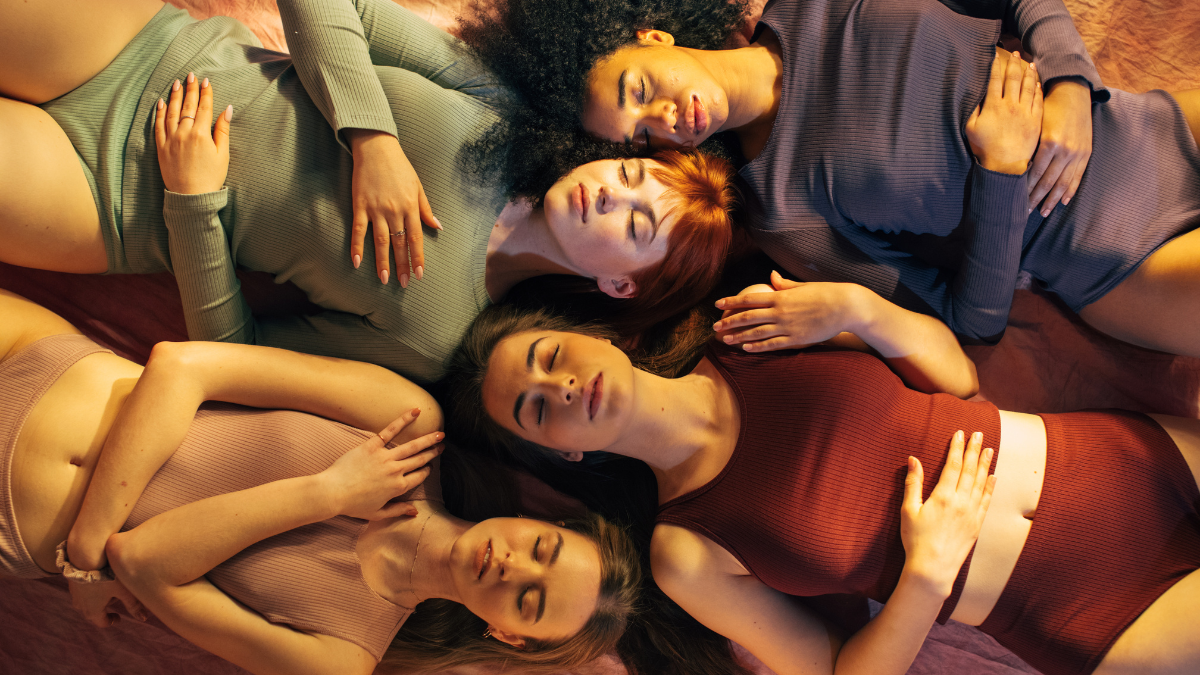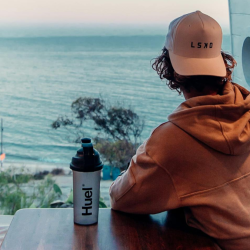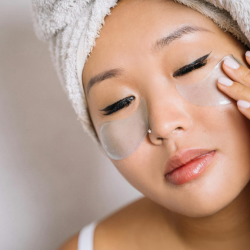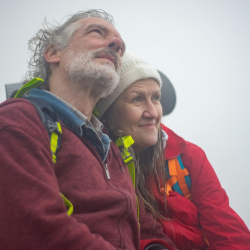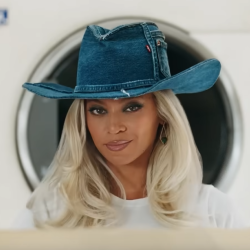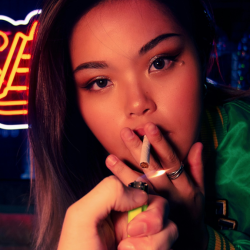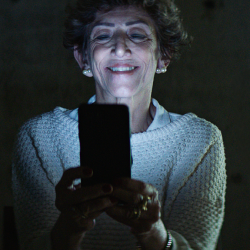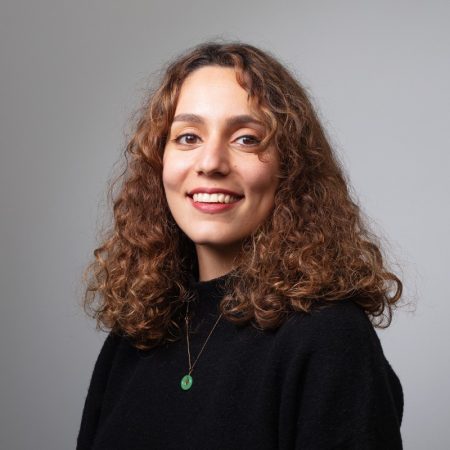
For the International Women’s Day MediaCat Magazine attended McCann London’s breakfast event Go Hug Yourself, which explored women’s health & well-being and how the company is nurturing the next generation of creative leaders.
We spoke to one of the panelists, McCann London Senior Planner Ipek Erel, to get a better understanding of the opportunities for the creative industries to change the narrative around women and of her personal experience.
Here’s what we learned.
Hi Ipek, cheers for taking the time to chat. Can you introduce us to the Go Hug Yourself project and describe the idea behind it?
Yeah, totally. Thanks for having me! We organised our Go Hug Yourself event to celebrate International Women’s Day (IWD) in tandem with the launch of our second Nurofen See My Pain campaign. We’re continuously looking for ways to celebrate our talent and work, and this event felt like the best way to get people in the same room to do just that. Celebrate the wonderful women at McCann London, our agency partners such as Deborah Williams and Nicola Kemp, and spotlight our progressive and ambitious clients such as Rose Gell.
This year’s official IWD theme is Go Hug Yourself, but we know we need more than a simple hug to achieve what we set out to — equity.
IWD panels can often seem a little lackluster; it feels like there’s a lot to talk about, but the action that follows may fall short. We wanted to spotlight our Nurofen See My Pain work on our panel. Having solid proof of action taken to voice an issue — one that women face daily in their lives — is significant. Also, having a range of experienced women, from Rose Gell to our CEO Polly McMorrow and Deborah Williams, from our Creative Director (Ruth Boulter) to a midweight perspective on my side, added huge value.

Our goal was to make it more down-to-earth and action-led. The idea of the Go Hug Yourself was masterminded by Clementine Cuthbertson, our Marketing Partner. It was about contrasting the too-soft narrative used when you’re talking about women. It’s almost like a double play: ‘You go hug yourself, we’re going to keep doing what we’re doing’.
How did you decide to partner with Nurofen for this project?
Partnering with Nurofen was a no-brainer for us. Nurofen is a big client with a lot of ambition to do purpose-led work and be more inclusive. It was a combination of the client being so hungry and eager and brave and our team being very passionate. It’s a mainly female team behind this idea, so it speaks to itself and that’s very important, isn’t it? I found that massively impactful.
During the event, you said ‘As an industry, we need to look at the micro-actions and barriers that prevent women feeling empowered and confident to share their experiences and views.’ Have you ever experienced a situation that made you feel unwelcomed as a woman?
I think in our industry, the reason why women might feel unwelcome or that they’re facing barriers regarding progression is sometimes down to something unspoken. Perhaps they can’t put a name to the unconscious biases or microaggressions or know what to do when they come up against them.
I remember when I was fresh to the industry, only a couple of months in with zero agency experience. One of my clients was a size-inclusive lingerie brand. We had an amazing team of women there with really strong points of view — super passionate, great ideas. But we ended up taking the direction of the stakeholders, middle-aged men who were trying to educate us on how a perfect bra should feel. At the time, I thought ‘Okay, they’re the key stakeholders and this is how it works’. But now I know it was wrong and I can’t help thinking about how the female leaders of that team must have felt.
On a personal level, I know what it’s like to feel like an outsider to industry culture. I was raised in Turkey and went to university in the States. In a strategic position, you’re always expected to know the answers or understand the ‘cool’ references. When I first started working at a UK agency, there would be times I didn’t know about UK-specific cultural references from several years before. They were surprised about it, and I was like ‘Well, thanks for sharing that Christmas or football ad from 20 years ago, but I wasn’t even speaking English then’. It took me a while to realise that it doesn’t make me a worse planner and that having my own references could bring something different into the industry.
I think a lot of women, especially women from ethnically diverse backgrounds might feel left out, or experience the confidence gap that I have been experiencing just because they don’t relate to a culture, or references that are deemed ‘best practice’ by a homogenous group of people.
What can we do to make women more conscious of these gaps?
One of the things that we should tackle is creating early awareness about what women could face and how to recognise particular adversaries throughout different phases of their careers. For example, when I first started out, I didn’t know right from wrong. That’s why I think it’s important for agencies and the industry at large to clarify what kind of behaviour is not okay and openly discuss the realities of women’s experiences on different levels in the industry.
We need to back up female industry leaders, to address barriers and give assurances that women who want to raise issues have a safe space and are empowered to do so. Nurofen’s work informed women and the medical industry and the public at large that women shouldn’t be suffering from this pain. It’s not normal and they shouldn’t be accepted as such. The same should be done in the creative industry. Women shouldn’t have to endure micro-aggressions, toxic culture or inequity at work, and they should have a platform and opportunity to speak out.
I think overall what we should do as an industry is openly pinpoint the most common ‘pains’ women experience at different stages of their career, first to create awareness, then think about tactics and behaviours which we can adopt as an industry to close the pain gap.
I want to be clear: looking back on my career, most of the amazing women I worked with were the ones to help me realise and navigate these issues. And there were a lot of great men who opened doors for me, and helped me get into the industry or progress in my position. It’s really important that the responsibility lies with everyone.
How does Nurofen’s Gender Pain Gap Index Report inspire your actions?
I think Nurofen’s work is so impactful because, on a personal level, it reminds me to tell the close circle of women around me not to disregard their pain. You don’t have to suffer. Go get it checked out. One of my friends was taking business meetings while enduring internal bleeding, and she just said ‘I’m just going to take some painkillers’. Turns out it wasn’t a small issue and it almost cost her life.
Women often experience Impostor Syndrome. Have you ever felt like you don’t deserve something? What did you do to feel more confident?
Yeah, big time. I felt it during the first year of my career, especially in the first couple of months. I’d be sitting through meetings in these big skyscrapers, looking outside and thinking ‘Do I deserve to be here? Am I good enough?’ I spent a lot of time worrying about whether I deserved it or not. And then I felt like it was such a loss of time.
Speaking personally, I think being on a visa fuelled that impostor syndrome. I know this is a common experience for visa holders, especially women. When McCann sponsored me, it was incredible because it was a network investing in international talent, but on a personal level, I thought ‘Oh, I better make sure they are getting their money’s worth out of me.’
What really helped me in terms of overcoming it was training and the great managers I have at McCann. Training gives you the confidence that you’re good at your craft. One of my first managers always gave great feedback and praise. It let me know what to focus on to improve myself. Also, having a mentor is an amazing resource for progression but also reassurance. I personally really benefited getting some guidance on someone outside of my organisation and broader point of view on the industry. But also a lot of the time what my mentors did was to reassure me that I was on the right path, which actually boosted my morale and increased my confidence.
That’s why I love mentoring women. To tell them that I faced the same issues and that’s okay, let’s stop and appreciate the fact we’re worthy and deserve to be where we are.
How is McCann contributing to women’s health and well-being and helping nurture the next generation of creative leaders?
As a network, first and foremost, it’s very people centric. You don’t feel excluded. I’ve always felt comfortable raising my voice — and from a cultural point of view especially, this is great.
In our industry, less than half of C-suite positions are women and only 29% of creative directors globally are women. The McCann network is working with people who identify as women within the agency, to provide them the right resources to be trained to be leaders and a community to support them.
Mainly, it’s about giving women more connections and more opportunities to participate in client briefs. They have more face time with creative leaders and mentors within the network in order to raise their profiles. We are lucky to be blessed with leaders who are amazing women. They are open and inclusive leaders. I think Polly is a great example. During the panel, she said that when she first got offered a job, she told them ‘I’m a mother of two kids and if you can’t face that, you better not hire me’. I really look up to her. We need more women who unapologetically stand for who they are, because being a woman doesn’t have to interfere with the positions or duties to lead a network.
Our theme of the month is ‘Kill your Idols. Do you have your own female idol? What models do you think we need to abolish instead?
I like to keep my idols and role models more accessible. I find it really hard to be inspired by the achievements of women like celebs. For me, those kinds of idols are standing on top of the Himalayas and telling you to climb harder without showing you the path.
Most of my idols are the women that I’ve worked with or the mentors who have opened the doors for me and showed me their journey. Natalie Lau, Strategy Partner in our London office, is one of my ‘idols’. She continues to lead by example and is a human that I can relate to, and therefore I can learn a lot from her.
On the other end, I think we should abolish all role models who tell women that they need to be more. The ones who capitalise on their own privilege to tell other women that they’re not enough (see Cheryl Sandberg).
Polly’s anecdote is a good example of making the system work for her and not just adhering to the rules of the system.
Women and their pain have been invisible in the system for too long. Are you planning any other related projects?
Atomic Soup is a platform where the agency comes together to talk about truths and insights on diversity, equity and inclusion. We have a session on immigration coming up. I’m really excited about it, because it sheds light on the experiences of people who are like a lot of us; those who have left their countries for better opportunities in an unfamiliar place. All the participants are going to be women talking from that point of view, which I’m really excited about because for me it’s a case of, ‘Yes, that’s what I’ve been going through and no one ever acknowledges, and now I know I am not alone’.
Featured image: KoolShooters / Pexels




















